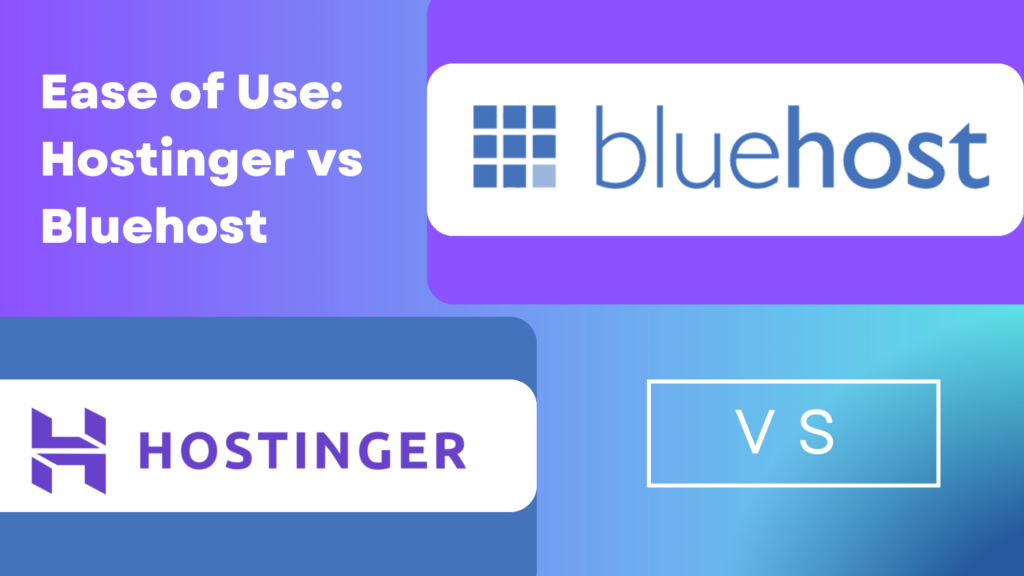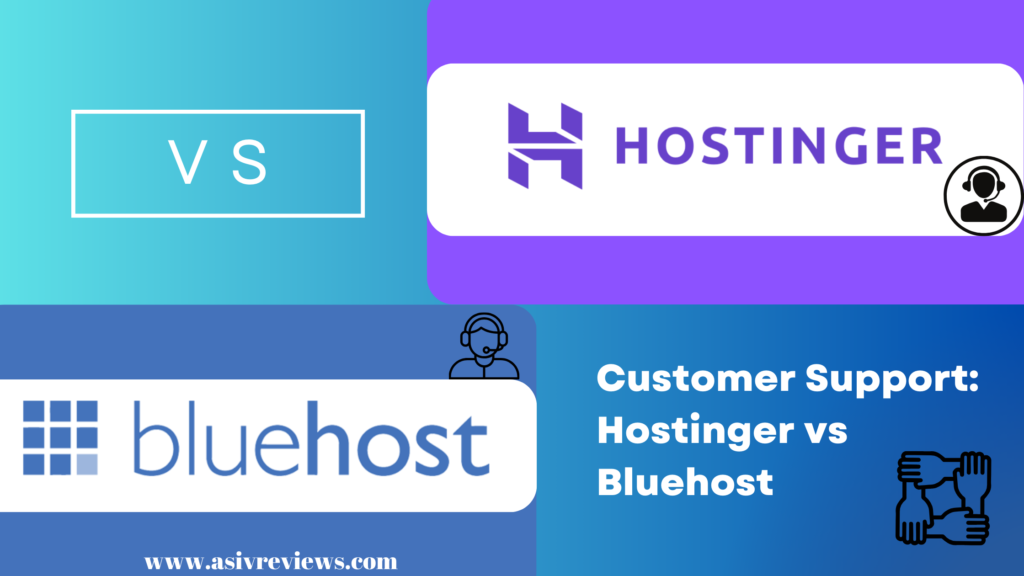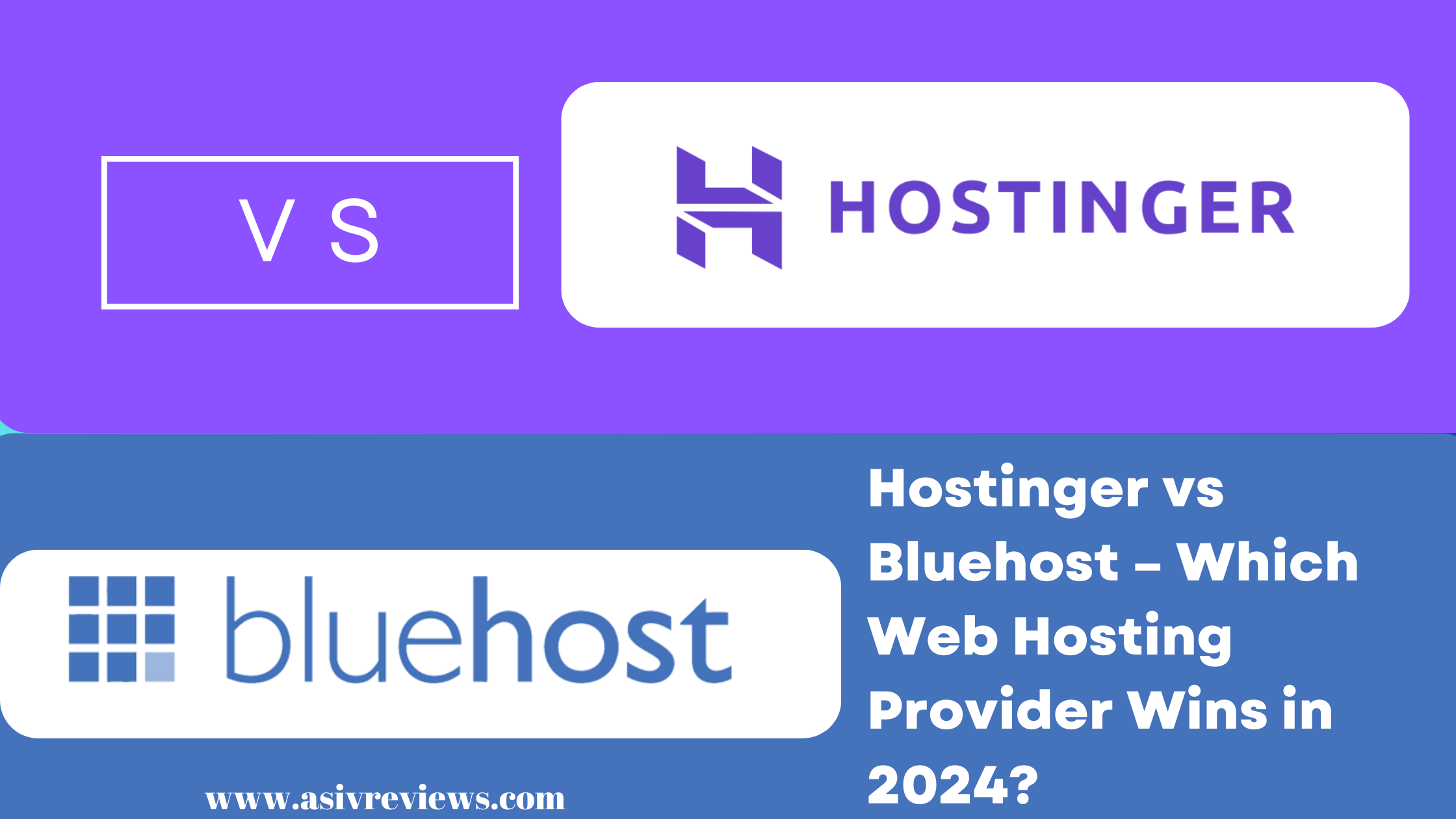Introduction
Choosing the right web hosting provider is critical for the success of your online venture. Whether you’re launching a new blog, setting up an online store, or hosting a digital portfolio, your hosting service will play a pivotal role in the performance and scalability of your site. In 2024, the debate between “Hostinger vs Bluehost” remains relevant as ever, with both providers offering distinct advantages and features. This detailed comparison will help you navigate through their offerings, pricing structures, performance metrics, and customer support systems to see which one might be the best choice for your specific needs.
Table of Contents
- Introduction
- Overview of Hostinger
- Overview of Bluehost
- Pricing and Plans Comparison:Hostinger vs Bluehost
- Performance and Reliability:Hostinger vs Bluehost
- Ease of Use:Hostinger vs Bluehost
- Customer Support:Hostinger vs Bluehost
- Security Features:Hostinger vs Bluehost
- Pros and Cons:Hostinger vs Bluehost
- Conclusion
Overview of Hostinger
Hostinger Hostinger is renowned for its affordability and ease of use, making it a preferred choice for beginners and small businesses alike. Since its inception in 2004, Hostinger has grown exponentially, now serving millions of users worldwide. The provider is celebrated for its user-friendly approach, with a focus on streamlined services and efficient customer support.
Hostinger’s hosting solutions include shared hosting, VPS hosting, and cloud hosting options, each equipped with advanced features to enhance site performance and user experience. Their commitment to speed and reliability is evident in their use of LiteSpeed Web Server technology across all hosting plans, ensuring optimal performance even during peak traffic times.
Overview of Bluehost
Bluehost On the other side of the “Hostinger vs Bluehost” comparison, Bluehost offers robust hosting solutions that cater to a wide range of users from bloggers to large enterprises. Established in 2003, Bluehost has a long-standing reputation for reliability and comprehensive support, especially for WordPress websites. It’s an officially recommended WordPress hosting provider, which speaks volumes about its service quality and expertise.
Bluehost’s array of hosting services includes shared hosting, dedicated hosting, VPS hosting, and managed WordPress hosting. They focus on providing scalable solutions that grow with your business, featuring easy upgrades and enhancements to cater to expanding website demands. Read More
Pricing and Plans Comparison:Hostinger vs Bluehost
Hostinger When discussing “Hostinger vs Bluehost” in terms of pricing, Hostinger typically takes the lead in affordability. Their entry-level plan starts at just $2.55 per month for 1 year , which is an excellent price point for those just starting out or operating on a tight budget. However, it’s crucial to note that to enjoy these low prices, longer-term commitments are usually required. Hostinger also offers a premium plan that includes daily backups, a free domain, and enhanced processing power, which is ideal for more dynamic websites with moderate traffic.
Bluehost Bluehost’s pricing strategy, while starting at a higher point of $1.99 per month for 1 year , includes significant value-added features such as a free domain for the first year, SSL certificate, and CDN services. Their plans are structured to provide more comprehensive tools and features out of the box, which may justify the higher initial cost, especially for users looking to leverage extensive WordPress features.
Performance and Reliability:Hostinger vs Bluehost
Hostinger In terms of performance, “Hostinger vs Bluehost” sees a strong contender in Hostinger. Their use of LiteSpeed servers across all plans ensures fast loading times and stability under load. Hostinger’s global data center presence also means that no matter where your audience is based, you can count on consistently high performance and minimal downtime, with an uptime guarantee of 99.9%.
Bluehost Bluehost counters with equally impressive uptime stats, often exceeding their promised 99.98% uptime. They employ high-quality, modern hardware and have a reputation for robust scalability options, making them a reliable choice for high-traffic sites and those that anticipate growth. Their servers are optimized for WordPress, offering specialized enhancements that improve performance for WordPress sites specifically.
Ease of Use:Hostinger vs Bluehost
Hostinger The user experience with Hostinger is particularly straightforward, thanks to their proprietary hPanel. This control panel is designed with simplicity in mind, allowing users to manage their hosting accounts with ease. Even those with no prior experience in website management will find it intuitive to perform tasks like installing CMS, managing DNS settings, or setting up email accounts.
Bluehost Bluehost’s use of cPanel, which is a standard in the hosting industry, appeals to both new and experienced users. Their integration with tools like Mojo Marketplace for one-click installs and the built-in website builder provides a seamless setup experience for all types of users. For WordPress users, Bluehost makes it even easier with features tailored for WordPress management, including automatic updates and plug-in management.

Customer Support:Hostinger vs Bluehost
Hostinger Hostinger excels in customer support with their commitment to providing fast and accessible help. Their 24/7 live chat and email support ensure that users can get assistance whenever needed. The quality of support is consistently high, with support staff trained to handle a range of issues from technical glitches to billing inquiries.
Bluehost In the “Hostinger vs Bluehost” debate, Bluehost also stands out with its comprehensive support system. They offer 24/7 access via phone, chat, and email, ensuring that users have multiple avenues to seek help. Their extensive knowledge base is filled with helpful guides and tutorials that can aid users in self-troubleshooting common issues, further enhancing the support experience.

Security Features:Hostinger vs Bluehost
Hostinger Security is a top priority at Hostinger, with proactive measures in place to protect user data and websites. Their integration with BitNinja, available on all plans, provides an all-encompassing security solution against a wide array of attacks. Additionally, Hostinger’s commitment to providing free SSL certificates and regular backups enhances site security and user trust.
Bluehost Bluehost’s approach to security includes free SSL certificates across all plans and options for enhanced security features through SiteLock, which monitors and protects sites from malware and other vulnerabilities. They also offer CodeGuard as an optional backup solution, which provides automatic daily backups and site restorations at an additional cost.
Pros and Cons:Hostinger vs Bluehost
Hostinger
- Pros:
- Extremely competitive pricing for entry-level and advanced plans.
- High-speed performance with global data centers.
- Simple, user-friendly management with their custom hPanel.
- Cons:
- Limited server locations can affect latency for some regions.
- Lack of phone support may be a drawback for users who prefer voice communication.
Bluehost
- Pros:
- Comprehensive feature set suitable for beginners and advanced users.
- Strong support for WordPress websites, including specialized hosting plans.
- Extensive customer support options, including phone support.
- Cons:
- Higher starting prices and significant price jumps upon renewal.
- Performance can be variable, particularly on lower-tier shared hosting plans.
Conclusion
The “Hostinger vs Bluehost” comparison highlights two different approaches to web hosting, each with its strengths and ideal use cases. Hostinger offers an exceptionally budget-friendly option for those starting out or operating small to medium-sized websites. Their focus on performance and ease of use makes them a great choice for users who need straightforward, effective hosting solutions.
Bluehost, meanwhile, provides a more feature-rich environment with strong support for WordPress users and those who anticipate needing extensive support and scalability. Their slightly higher cost reflects a comprehensive hosting solution that can grow with your business.
In choosing between Hostinger and Bluehost, consider what matters most for your website’s needs—whether it’s the price, specific features, performance, or support. Both providers offer competitive services, but your decision should be based on which features align best with your hosting requirements.






